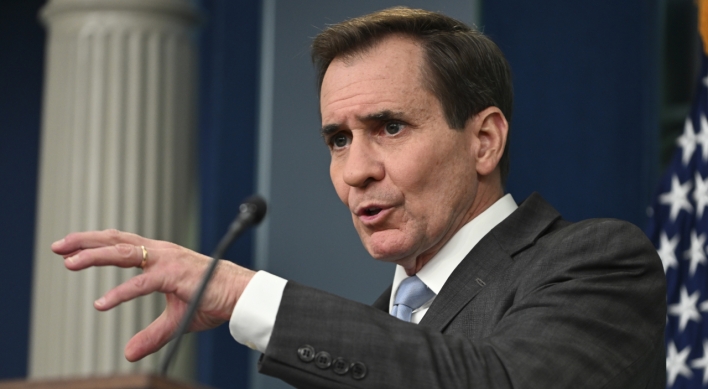Scandals highlight blind spots in international school regulations
By Lee Hyun-jeongPublished : March 15, 2016 - 15:44
A series of irregularities discovered at international schools recently have raised concerns about the need to tighten the monitoring of such schools, which have ascended to the top echelons of private education in the country and become attractive sources for foreign investment.

Seoul Metropolitan Office of Education on Tuesday launched an audit of British international school Dulwich College over allegations of accounting fraud. The school is suspected of embezzling 7.5 billion won ($6.3 billion won) in school expenses through the establishment of a paper company.
Earlier this month, another international school in Seoul was forced to close by authorities for illegally transferring management rights without the required permit. Its official closure is slated for June 30, considering the class schedule, the Education Ministry said.
International schools in Korea refer to educational institutions established for children of foreigners and for Koreans who have lived overseas for a period of time. As of this year, a total of 46 such schools are operating in the country, mostly in the capital.
In recent years, public criticism has been raised over the schools for being “elite institutions” for the rich, counter to the intended purpose of educating foreign residents.
In the case of Dulwich, 25 percent of the total 650 students are Koreans. The tuition fee is said to be 30 million won ($25,300) per year. Tuition fees for local public high schools are typically around 2 million won per year.
International schools have enjoyed eased regulations for nearly a decade.
In 2008, the Lee Myung-bak government eased the school admission criteria from “Koreans who lived abroad for over five years” to “over three years.” It also allowed local nonprofit corporations and school corporations to establish schools. Only foreigners were entitled to open international schools in the past.
Monitoring of school management, however, has remained a blind spot.
Under relevant laws, international schools are classified as “miscellaneous schools” under the monitoring of municipal education offices.
On the other hand, the regulations over school establishment and operation are separately set by the Education Ministry.
In reality, these schools mostly run under their own rules, starting from curriculum design, as they are not funded by the government, officials said.
“Since these schools are not within the boundaries of the local mandatory education system, they naturally get more discretion over the way they run the schools. Because their background and rules are all different from local schools, it’s realistically difficult to monitor them all,” an SMOE official told The Korea Herald.
To enhance supervision, SMOE said it would draw comprehensive measures soon to expand its surveys of other international schools, following the audit of Dulwich.
By Lee Hyun-jeong (rene@heraldcorp.com)
Earlier this month, another international school in Seoul was forced to close by authorities for illegally transferring management rights without the required permit. Its official closure is slated for June 30, considering the class schedule, the Education Ministry said.
International schools in Korea refer to educational institutions established for children of foreigners and for Koreans who have lived overseas for a period of time. As of this year, a total of 46 such schools are operating in the country, mostly in the capital.
In recent years, public criticism has been raised over the schools for being “elite institutions” for the rich, counter to the intended purpose of educating foreign residents.
In the case of Dulwich, 25 percent of the total 650 students are Koreans. The tuition fee is said to be 30 million won ($25,300) per year. Tuition fees for local public high schools are typically around 2 million won per year.
International schools have enjoyed eased regulations for nearly a decade.
In 2008, the Lee Myung-bak government eased the school admission criteria from “Koreans who lived abroad for over five years” to “over three years.” It also allowed local nonprofit corporations and school corporations to establish schools. Only foreigners were entitled to open international schools in the past.
Monitoring of school management, however, has remained a blind spot.
Under relevant laws, international schools are classified as “miscellaneous schools” under the monitoring of municipal education offices.
On the other hand, the regulations over school establishment and operation are separately set by the Education Ministry.
In reality, these schools mostly run under their own rules, starting from curriculum design, as they are not funded by the government, officials said.
“Since these schools are not within the boundaries of the local mandatory education system, they naturally get more discretion over the way they run the schools. Because their background and rules are all different from local schools, it’s realistically difficult to monitor them all,” an SMOE official told The Korea Herald.
To enhance supervision, SMOE said it would draw comprehensive measures soon to expand its surveys of other international schools, following the audit of Dulwich.
By Lee Hyun-jeong (rene@heraldcorp.com)





![[Music in drama] Rekindle a love that slipped through your fingers](http://res.heraldm.com/phpwas/restmb_idxmake.php?idx=644&simg=/content/image/2024/05/01/20240501050484_0.jpg&u=20240501151646)




![[New faces of Assembly] Architect behind ‘audacious initiative’ believes in denuclearized North Korea](http://res.heraldm.com/phpwas/restmb_idxmake.php?idx=644&simg=/content/image/2024/05/01/20240501050627_0.jpg&u=20240502093000)







![[Today’s K-pop] Stray Kids go gold in US with ‘Maniac’](http://res.heraldm.com/phpwas/restmb_idxmake.php?idx=642&simg=/content/image/2024/05/02/20240502050771_0.jpg&u=)